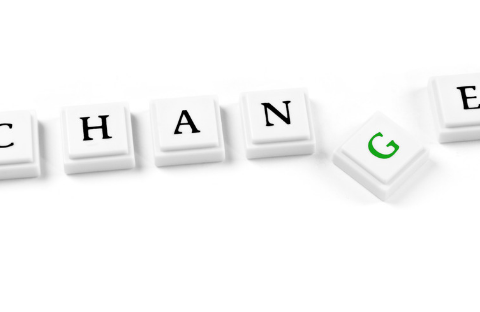How Our Relationship with Ourselves Impacts Our Health

As a physician, I am a keen observer. A good scientist observes what works, what doesn’t, as well as the outcomes of behaviors even when mechanisms seem elusive. After 30 plus years of medical practice, I see common patterns underlying health and illness; patterns of thinking, feeling, and behavior that have a powerful impact on how we live, why we get sick, and how we can heal. The level of meaning in one’s life affects one’s perspective and relationship to oneself, especially in times of stress and crisis. The search for meaning has been one of the most elusive yet important keys to happiness. It requires making a choice to live from this place. I have often wondered why more of us don’t live from this perspective. If we did, our collective consciousness would be healthier, less violent, and more caring.
There is common ground among us humans. We are creatures of habit. The vast majority of us resist change, align with the familiar, and are not conscious of our relationship with ourselves. We have all adapted to survive. We did this at the cost of our relationship to ourselves. How many people would choose growth and alignment with oneself over one’s relationships? Often our relationships with others require us to behave in ways they do, even if they are not healthy for us. We become complicit with them at a cost to our health. Pretty soon we live out of alignment with our inner guidance system and identify more with our adapted state than who we really are. Given this survival-adaptation pattern, it is easy to see how our compromised relationship with ourselves can become the root cause of our illness. If our adapted choices normalize unhealthy diets, lack of self-care, and materialism, we live from this thinking track. Unlike parts of the world where health, a connection to the natural world, and community is normalized, we place productivity above these values. Our self-worth has become based on materialism, even at the cost of how we really feel. We currently live in a society that normalizes industrial food, denies a connection between food and health, and has little to no appreciation for balance and self-care. Our relationship with ourselves has been lost somewhere in the shuffle.
The most common excuse for lack of self-care that I hear is, “I have no time for me.” We live in a culture where time spent not working at our job is seen as time wasted. How many times have I heard, “We are all going to die someday? If I get sick, I can be fixed by the medical system. I am happy just the way I am.” It turns out we are not a very happy country. We rank 108/140 in the Happy Planet Index. As far as our health is concerned, the US is the highest spender in healthcare and the unhealthiest country in the world.
In my opinion, the common denominator underneath these statistics boils down to our relationship with ourselves. If we consider ourselves worthy of health, we would take the extra time to nourish ourselves, get regular exercise, seek meaning and limit our self-compromises. In my practice, I offer simple yet powerful solutions that have yielded impressive results. A large majority of my patients have reversed their diseases, have more meaningful lives, and have never been hospitalized.
We have to develop a skillset and take the time to learn and understand how our choices have caused us to feel poorly or get sick. When we begin to make healthier choices, we experience a different outcome and begin to feel more vital and reverse diseases. We can experience the inherent resilience and healing capacity of the body when we create a healthy body environment through changes in lifestyle. However, when we make healthy choices, we challenge our adaptations to unhealthy ones that have gained traction over time. It takes endurance to stay the course that reverses disease and restores our health. This may sound simple, but this also sets off a cascade of tension in relationships we hold dear. We begin to uncover the complacency towards health underneath them. We come face to face with how we have adapted to these relationships. These are survival adaptations. Challenging these makes us feel vulnerable. So setting an intention to reclaim our health challenges us to live in the opposite direction of what is normalized which has traction and has led to our lethargy of living from a default position.
When seen this way, the majority of my patients choose health knowing that it will take courage and endurance to ‘swim upstream. Those who have experienced the brutality of our medical system for their chronic health conditions, never want to set foot in a hospital again. Sometimes this is a great motivator itself. The pain of transformation is always less than the pain from complacency. Lifestyle becomes a series of conscious choices, arising from a desire to repair our relationship with ourselves and nourish and protect our bodies from the normalized perspective of our society. Most of the diseases in the U.S. are diseases of lifestyle. Scientific evidence now shows that these can be reversed merely by the power of choosing to live differently.
It is startling to see how we are willing to compromise our health even for that which does not give us a sense of meaning. If we have a positive relationship with ourselves, we would never compromise our health for our jobs, and we would have the courage to seek meaningful work.
So, before you stop at the fast-food drive-through, microwave a frozen food for dinner, or order a ‘take out’ from an unhealthy restaurant check-in with yourself and see if saving time, taking a default position, or adding unhealthy food to your body is what you are worthy of. If your answer is yes, you may want to consider healing your relationship with yourself. If your answer is ‘no’, you are the few Americans who will likely never get sick enough to be hospitalized and most likely will score higher on the happiness index. People who have healthy lifestyles also exercise more and have more meaningful relationships.
How we choose to live effects not only us but also people whose lives we touch. This is the “Power of One”. If we want our society to be healthy, we must play our part in its transformation. I would place healing our relationship to ourselves at the top of that list.
©April2018 Kalpana (Rose) M. Kumar M.D., CEO and Medical Director, The Ommani Center for Integrative Medicine, Pewaukee, WI. www.ommanicenter.com Author of 2nd Edition – Becoming Real: Reclaiming Your Health in Midlife 2014, Medial Press. Dr. Kumar is happy to accept new patients; call 262.695.5311 to schedule an appointment.


